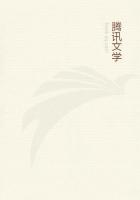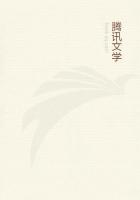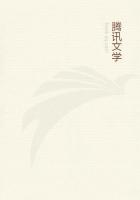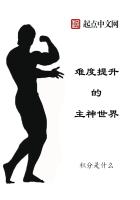Mr.Traill would have been surprised to know, perhaps, that the confines of the city were scarcely passed before Bobby stopped protesting and grieving and settled down patiently to more profitable work.A human being thus kidnapped and carried away would have been quite helpless.But Bobby fitted his mop of a black muzzle into the largest hole of his wicker prison, and set his useful little nose to gathering news of his whereabouts.
If it should happen to a dog in this day to be taken from Ye Olde Greyfriars Dining-Rooms and carried southward out of Edinburgh there would be two miles or more of city and suburban streets to be traversed before coming to the open country.But a half century or more ago one could stand at the upper gate of Greyfriars kirkyard or Heriot's Hospital grounds and look down a slope dotted with semi-rustic houses, a village or two and water-mills, and then cultivated farms, all the way to a stone-bridged burn and a toll-bar at the bottom of the valley.
This hillside was the ancient Burghmuir where King James of old gathered a great host of Scots to march and fight and perish on Flodden Field.
Bobby had not gone this way homeward before, and was puzzled by the smell of prosperous little shops, and by the park-like odors from college campuses to the east, and from the well-kept residence park of George Square.But when the cart rattled across Lauriston Place he picked up the familiar scents of milk and wool from the cattle and sheep market, and then of cottage dooryards, of turned furrows and of farmsteads.
The earth wears ever a threefold garment of beauty.The human person usually manages to miss nearly everything but the appearance of things.A few of us are so fortunate as to have ears attuned to the harmonies woven on the wind by trees and birds and water; but the tricky weft of odors that lies closest of all, enfolding the very bosom of the earth, escapes us.Alittle dog, traveling with his nose low, lives in another stratum of the world, and experiences other pleasures than his master.
He has excitements that he does his best to share, and that send him flying in pursuit of phantom clues.
From the top of the Burghmuir it was easy going to Bobby.The snow had gone off in a thaw, releasing a multitude of autumnal aromas.There was a smell of birch and beech buds sealed up in gum, of berries clotted on the rowan-trees, and of balsam and spice from plantations of Highland firs and larches.The babbling water of the burn was scented with the dead bracken of glens down which it foamed.Even the leafless hedges had their woody odors, and stone dykes their musty smell of decaying mosses and lichens.
Bobby knew the pause at the toll-bar in the valley, and the mixed odors of many passing horses and men, there.He knew the smells of poultry and cheese at a dairy-farm; of hunting dogs and riding-leathers at a sportsman's trysting inn, and of grist and polluted water at a mill.And after passing the hilltop toll-bar of Fairmilehead, dipping across a narrow valley and rounding the base of a sentinel peak, many tame odors were left behind.At the buildings of the large, scattered farms there were smells of sheep, and dogs and barn yards.But, for the most part, after the road began to climb over a high shoulder of the range, there was just one wild tang of heather and gorse and fern, tingling with salt air from the German Ocean.
When they reached Cauldbrae farm, high up on the slope, it was entirely dark.Lights in the small, deep-set windows gave the outlines of a low, steep-roofed, stone farm-house.Out of the darkness a little wind blown figure of a lassie fled down the brae to meet the cart, and an eager little voice, as clear as a hill-bird's piping, cried out:
"Hae ye got ma ain Bobby, faither?"
"Ay, lassie, I fetched 'im hame," the farmer roared back, in his big voice.
Then the cart was stopped for the wee maid to scramble up over a wheel, and there were sweet little sounds of kissing and muffled little cuddlings under the warm plaid.When these soft endearments had been attended to there was time for another yearning.
"May I haud wee Bobby, faither?"
"Nae, lassie, a bonny bit bairnie couldna haud 'im in 'er sma'
airms.Bobby's a' for gangin' awa' to leev in a grand kirkyaird wi' Auld Jock."A little gasp, and a wee sob, and an awed question: "Is gude Auld Jock deid, daddy?"Bobby heard it and answered with a mournful howl.The lassie snuggled closer to the warm, beating heart, hid her eyes in the rough plaid, and cried for Auld Jock and for the grieving little dog.
"Niest to faither an' mither an' big brither Wattie I lo'e Auld Jock an' Bobby." The bairnie's voice was smothered in the plaidie.Because it was dark and none were by to see, the reticent Scot could overflow in tender speech.His arm tightened around this one little ewe lamb of the human fold on cold slope farm.He comforted the child by telling her how they would mak'
it up to Bobby, and how very soon a wee dog forgets the keenest sorrow and is happy again.
The sheep-dogs charged the cart with as deafening a clamor of welcome as if a home-coming had never happened before, and raced the horse across the level.The kitchen door flared open, a sudden beacon to shepherds scattered afar on these upland billows of heath.In a moment the basket was in the house, the door snecked, and Bobby released on the hearth.
It was a beautiful, dark old kitchen, with a homely fire of peat that glowed up to smoke-stained rafters.Soon it was full of shepherds, come in to a supper of brose, cheese, milk and bannocks.Sheep-dogs sprawled and dozed on the hearth, so that the gude wife complained of their being underfoot.But she left them undisturbed and stepped over them, for, tired as they were, they would have to go out again to drive the sheep into the fold.















